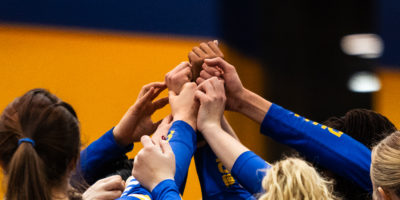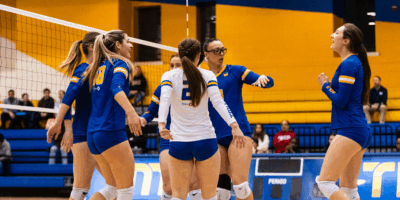By Emma Prestwich
News Editor
An annual report from Ryerson’s ombudsperson shows an 81 per cent increase in instructor complaints from last year.
The report grouped the complaints into three main categories: lack of instructor accessibility, disrespect, and lack of impartiality in decision-making.
Manvi Kapoor, a fourth-year direct entry student in business management, said she can understand the jump in numbers.
She said that she filled out an anonymous faculty course survey online in the spring regarding a professor’s conduct, and then received an “rude” and “snippy” email from the professor in the summer defending his actions.
“I thought he must have read the faculty course survey,” she said.
“It seems very immature and childish.”
While she didn’t pursue the complaint, she has seen many more examples of instructor misconduct, including professors yelling at students and swearing out of anger in class.
“Professors teach behind closed doors,” she said. “I’m not surprised that the ombudsperson is receiving more complaints.”
Vice provost academic John Isbister said that it’s possible that this is a systemic issue, but that the one-year jump in numbers doesn’t alarm him.
“If it keeps going up, then we really have a problem.”
In her report, which doesn’t identify students to protect their privacy, ombudsperson Nora Farrell recommended the university ensure all faculty training emphasizes impartiality in decision-making.
Former vice provost academic Alan Shepard responded in the report, saying that he was committed to incorporating this issue in faculty training.
However, Isbister, the new vice provost, said that while the university offers training for new faculty on being fair and unbiased towards students, there is currently no continuing education for professors.
“Do we pull people into a room periodically? No,” he said.
Anver Salojee, President of the Ryerson Faculty Association, also admitted that there is no ongoing training for instructors, but that the Ryerson offers “good resources” in the teaching and learning office.
He said there may be a number of factors leading to the increased number of complaints, such as large class sizes and heavy workloads, as well as limited office hours.
“Students may feel like this is not enough,” he said.
He said Ryerson may need to host more seminars for professors or open-forum discussions, but that he would like to know more about the complaints to know how to respond.
“The [report] raises more questions for me than it answers,” he said.
Kapoor, who used the ombudsperson’s services in another situation, said that she found the office helpful, but wished that they were able to do more.
“It felt paralyzing, to know that all they can do is make recommendations,” she said. “Ryerson is not obligated to act on [them].”












J
Dajnowiec is one prof that needs to do something other than teach. He is certainly not good at it.